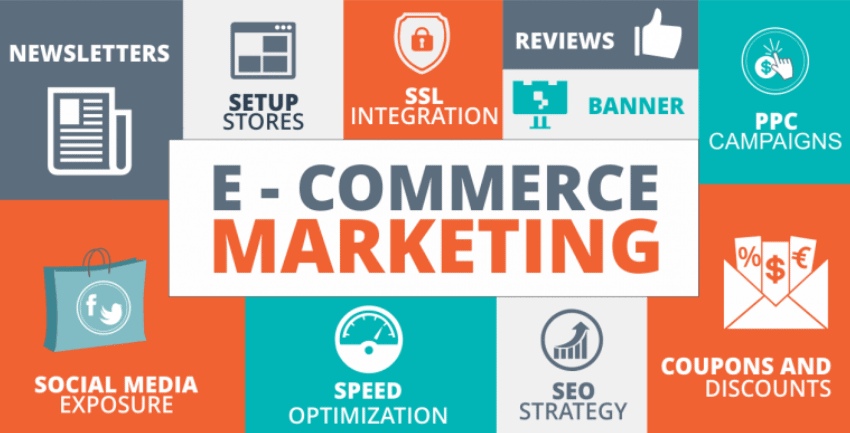When you’re starting a new business, choosing the right ecommerce platform is crucial. There are a lot of different options available, and it can be difficult to decide which one is right for your company.
In this article, we’ll outline the key factors you need to consider when making your decision, and we’ll recommend some of the best platforms for startups. So whether you’re just getting started or you’re looking for an upgrade, read on for some helpful advice!
What is an Ecommerce Platform for a Startup?
An ecommerce platform is a software solution that enables businesses to operate online stores. The platform provides the infrastructure for running an online store, including hosting, payments, shipping, and customer management.
Many platforms also offer additional features, such as marketing and SEO tools, that can help businesses grow their online presence. When choosing an ecommerce platform for a startup, it is important to consider the needs of the business and the budget.
There are a variety of platforms available, ranging from simple solutions to complex enterprise-level systems. Many platforms offer free or low-cost plans for small businesses, making it easy to get started.
However, as businesses grow, they may need to upgrade to a paid plan in order to take advantage of advanced features and scale their operations.
Ultimately, the best ecommerce platform for a startup is one that can grow with the business and provide the tools and resources needed to succeed online.
Choosing the Right Tech Stack
Choosing the right tech stack for your startup is one of the most important decisions you will make. It can make or break your business. There are a few key factors you need to consider when making this decision.
First, you need to make sure the technology stack is compatible with your business model. If you are a SaaS company, for example, you will need a technology stack that supports SaaS.
Second, you need to make sure the technology stack is scalable. It needs to be able to handle the growing needs of your business.
Third, you need to make sure the technology stack is affordable. You don’t want to overspend on technology that you don’t need.
Finally, you need to make sure the technology stack is reliable. You don’t want to risk your business by choosing a technology stack that is not stable.
When choosing a technology stack, it is important to weigh all of these factors and choose the one that is best for your business.
What Should Startups Consider When Choosing an Ecommerce Platform?
Cost of Ownership
When it comes to choosing an ecommerce platform, cost of ownership is an important consideration. In order to determine the full cost of ownership for a given platform, you need to take into account not just the initial license fee but also the costs of implementation, customization, integration, and ongoing maintenance.
Additionally, you need to consider the opportunity cost of not choosing a particular platform. For example, if you choose a less expensive platform that is not as well-suited to your needs, you may end up spending more in the long run on things like customizations and third-party integrations.
On the other hand, if you choose a more expensive platform that has everything you need out of the box, you can save money in the long run by avoiding unnecessary costs. Ultimately, the best way to determine which ecommerce platform is right for you is to carefully consider all of the costs involved and compare them against your specific business needs.
Flexibility

For startup businesses, it is essential to choose an ecommerce platform that is flexible. The ecommerce platform should be able to easily adapt and scale as the business grows.
A lot of businesses make the mistake of choosing a platform that doesn’t have the flexibility to grow with them, and as a result, they outgrow the platform and have to start from scratch.
This can be a costly and time-consuming process. By choosing a flexible ecommerce platform, businesses can avoid this problem and save themselves a lot of headaches in the long run.
Additionally, a flexible ecommerce platform will also provide businesses with the ability to customize their store to meet their specific needs. This is important for creating a unique brand identity and ensuring that customers have a positive experience when they visit the store.
Future-proofing your tech stack
As a startup, it’s important to choose an ecommerce platform that is future-proof. By definition, future-proofing means making a product or system resistant to obsolescence or change.
In the context of choosing an ecommerce platform, it means considering both the current needs of your business as well as any future needs that might arise.
For example, if you’re planning on selling internationally from the outset, you’ll need to choose a platform that supports multiple languages and currencies. Conversely, if you’re only planning to sell in your home country, you might not need these features right away but they could become important down the line.
Future-proofing your tech stack also means considering things like scalability and integration. As your business grows, you’ll need a platform that can accommodate more products, more customers, and more data.
And as you add new applications and systems, it’s important to choose a platform that can integrate seamlessly. By taking the time to future-proof your tech stack, you can avoid the costly and time-consuming process of switching platforms down the road.
Ease of use
When choosing an ecommerce platform for a startup, it is important to consider ease of use. A platform that is user-friendly and easy to navigate will make it more likely that customers will complete a purchase. In contrast, a platform that is difficult to use will frustrate customers and drive them away.
A good ecommerce platform will offer a variety of features that allow startups to customize their online store to meet their specific needs.
However, it is also important to ensure that these features are easy to use. Otherwise, they will be of no value to the startup. For this reason, ease of use should be a key consideration when choosing an ecommerce platform for a startup.
Omnichannel capabilities
As any ecommerce entrepreneur knows, choosing the right platform is essential for success. Not only does it need to be feature-rich and user-friendly, but it also needs to be able to scale as your business grows. One key factor to consider when choosing an ecommerce platform is omnichannel capabilities.
In today’s world, shoppers expect a seamless experience whether they’re shopping online, in-store, or through a mobile app. They also expect to be able to easily track their orders and receive updates on their purchase journey.
A platform that offers omnichannel capabilities will be able to provide a consistent experience across all channels and meet the needs of today’s digital consumer. When considering an ecommerce platform for your startup, be sure to consider its omnichannel capabilities.
Ecommerce Platform Options
When it comes to ecommerce platforms, there are a lot of options to choose from. Here, we will compare three of the most popular ecommerce platforms: Shopify, Magento, and WooCommerce.
Shopify is a platform that is easy to use and is perfect for small businesses. It offers a wide range of features, including a built-in shopping cart, payment processing, and inventory management. The downside to Shopify is that it is more expensive than other platforms.
Magento is a powerful platform that is perfect for larger businesses. It offers a lot of features and customization options, which can be helpful for businesses that need a lot of flexibility. However, Magento can be difficult to use and is not as beginner-friendly as Shopify.
WooCommerce is a free plugin for WordPress that allows businesses to create an ecommerce store. It is relatively easy to use and offers a lot of flexibility. However, it does not have as many features as Shopify or Magento.
So which platform is best for your business? It depends on your needs and budget. If you are looking for a simple platform with all the features you need, then Shopify would be the best option.
If you need more flexibility and customization options, then Magento would be a better choice. And if you are on a tight budget or are already familiar with WordPress, then WooCommerce would be the best option.
Challenges Faced By Ecommerce Startups
Ecommerce startups face many challenges, the most common of which are listed below.
- Securing Funding: Securing funding is always a challenge for startups, and this is especially true for ecommerce businesses. This is because ecommerce businesses are often seen as high risk ventures, since they involve selling products and services online, which can be difficult to do successfully.
- Developing a Robust Ecommerce Platform: Building a robust ecommerce platform that can handle all of the traffic and sales that a startup experiences is another challenge that ecommerce startups face. This platform needs to be able to scale up quickly and handle high volumes of traffic without crashing.
- Building Brand Awareness: Building brand awareness is another challenge that ecommerce startups face. This involves creating a strong marketing strategy that will help people become aware of your company and its products or services.
- Creating Effective Sales Strategies: Selling products or services online can be difficult, so ecommerce startups need to create effective sales strategies that will help them reach their target audience and convert leads into customers.
- Dealing With Competition: Dealing with competition is always a challenge for startups, and this is especially true in the ecommerce space, where there are many competitors. Ecommerce startups need to find ways to differentiate themselves from the competition and stand out from the crowd.
Quick Links
- What You Need to Know About Securing Your Ecommerce?
- Alibaba vs Amazon: Giants’ Battle Ultimate Guide- Find Which Is Best Ecommerce Tool?
- Best Platforms To Buy, Sell And List Online Business
Conclusion: How to Choose the Best Ecommerce Platform for Startups 2024
In conclusion, the best ecommerce platform for startups is the one that’s user-friendly, has features to help you scale as your business grows, and integrates with other tools you need to run your business.
If you keep these factors in mind when choosing an ecommerce platform, you’ll be on the right track to building a successful online store. Do you have any other tips for choosing the best ecommerce platform for startups? Share them in the comments below!


